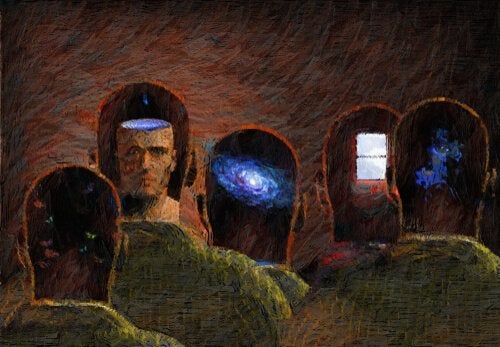Little has been written about the philosophy of doubt. The history of thought and doubt is contemporary. When man began to systematically reason about himself and his reality, the first fundamental doubts arose.
The great epic texts point out that dilemmas, questions, risks and insecurities have faced, for many centuries, a purely heroic approach; the best demonstration is represented by the books Lyaada and Odyssey.
- In the ancient Greek world.
- Rhetoric became the art of reasoning about existence and.
- Moreover.
- An instrument of persuasion.
- In About the Not Being or About the Nature of Gorgias (Diels and Kranz.
- 1923).
- Doubts are the central basis of free thinking.
In the words of Protagoras: “Man is the measure of all things, the things that are, while they are, things that are not, when they are not. “Such a philosophical position focuses on developing the individual’s abilities to manage reality, others and himself.
Socrates also evoked the philosophy of doubt through Plato’s great work, thus becoming the figure of the virtuous thinker. From this historical moment, the world of ideas and thought becomes the Olympus of man.
Acting effectively ceases to be the goal of reflection and philosophical thinking begins to feed. The search for truth becomes the ultimate and most important goal of philosophical research. It uses doubt as the main instrument of this investigation, but its objective is its annulment to attain supreme knowledge.
If we analyze socratic and mayeutic doubt, something is clarified, proceeding through guided questions it is possible to bring out the inner truth of man, in this way, once the truth is reached, the doubt is undone (resulting in more questions).
However, it is with Plato’s work that the world of ideas transcends the practical dimension. The whole work of Plato, a disciple of Socrates, seeks to demonstrate the supreme value of truth. The world of absolute ideas determines everything.
Doubt no longer finds room as a liberating stimulus for prisons of knowledge controlled by indisputable ideas, because they are absolute. In The Republic, Plato argued about the need for the rehabilitation of the intellect, which must be done in structures that somehow foreshadow modern concentration. camps, built away from the city.
For Plato, knowledge emanated from God (a very special deity), like light; the furthest from this source was the most ignorant and the most primitive; anyone who has approached, through knowledge and faith, the world of absolute ideas, has gone from bestiality to becoming a philosopher.
The philosophy of doubt can also be observed in St Augustine, doubt is for St Augustine an obligatory step towards truth, referring to Socrates, said that doubt itself is an expression of truth, we could not doubt it if it did not exist. truth that can be drawn from doubt.
Therefore, truth cannot be known in itself, it can only be known as a rebuttal of error. She finds her evidence in the ability to doubt the false illusions that obscure her path.
Throughout the Middle Ages, scholastic teachers rediscovered st Augustine’s lesson and ancient Helénic rhetoric, through seemingly unresolved doubts and dilemmas, and concluded that the rigor of reasoning as the truth of God has somehow overcome man’s doubts.
It was precisely at this time that universities were born, the cradle of academic knowledge, they were not born by chance. They were founded by the masters of scholastics, among the most important representatives are Aquino and Father Abelardo.
The philosophy of doubt cannot be separated from science. From the second half of the nineteenth century another great movement emerged that promised victory over doubt and human dilemmas: science.
Positivist confidence in scientific knowledge soon becomes a kind of faith. We refer to a kind of promise of liberation from all evil and improvement of the human condition.
It was not until the early twentieth century that extreme confidence in science and its ability to lead us to objective knowledge, which collapsed due to the most advanced methodological reflections and scientific discoveries, also collapsed.

